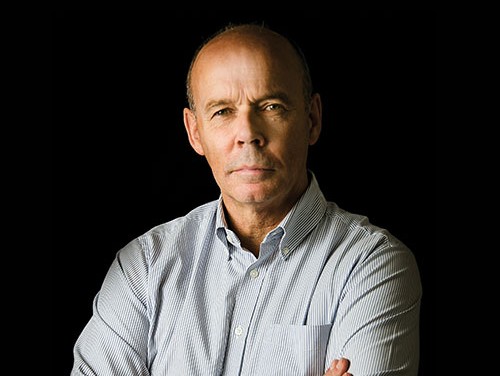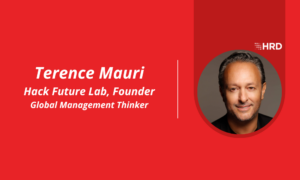Interview: Sir Clive Woodward on leadership, people management and team culture
- 5 Min Read
Sir Clive Woodward opens up about how to influence corporate culture, drive employee performance and manage successful teams.
- Author: Calum Fuller
- Date published: May 10, 2016
- Categories

While few people may see similarities of coaching a rugby world cup winning team and the world of business, with 18 years of experience at Xerox and his own finance company, Sir Clive Woodward believes the same skills apply.
Sir Clive coached the England 2003 rugby world cup winning side and spoke to HRD Connect’s sister title Financial Director to explain how he sees the world of work developing and the growing influence of technology upon it.
Inparticular, he highlights the need for strong leaders to be open to ideas from all sources, the ability to proritise people’s talent first and their personality second, and to seek improvement in every possible area.
Every little helps
A proponent of “doing 100 things 1% better” – similar to the successful marginal gains policy used to great effect by former British Cycling coach Sir Dave Brailsford – Sir Clive believes in both business and sport it is very unlikely that vastly improving in one area will yield great results. Rather, he says seeking to build on several areas in a small way frequently yields dramatically better outcomes.
“If you go into every aspect of what you do and break it down and improve those things by 1%, it all adds up,” he says.
“In rugby, we understand all the parameters – let’s break it down into as much detail as possible and try and do every bit of it slightly better than anyone else.
“It has to become part of your culture,” Sir Clive adds.
“You have to be always doing it and just because you’ve improved something one day doesn’t mean you can’t improve it the next. It has to be the ethos of everybody. Everyone in that team has the obligation, if they think we can do something better, to hold their hand up and say it.”
Exclusive: Howard Webb reveals how to resolve conflict and handle difficult personalities
Different perspectives
That philosophy extends to canvassing the input of independent third parties in order to pool as much knowledge and ideas as possible in pursuit of higher performance levels.
“These ideas can come from anywhere, not just you as a leader,” he explains.
“What we’ve got really good at is having other people from other areas coming in and looking at what we’re doing. It’s understanding that it’s not just using your own people, it’s using other people who you like and respect and are bright enough to look in and you’d be amazed at these new thoughts and new ideas. That’s what high-performing teams do.”
Introducing that methodology can potentially be troublesome, particularly when there is already an entrenched way of doing things in place at an organisation.
“There’s no easy answer to that, there’s no magic fix,” admits Sir Clive. “The only easy answer is this: you sit down with your team, you explain it one-to-one, you empower them to get involved and it’s not a case of saying ‘we’re going to have this big change’.
“The Big Change philosophy is coming up with these big ideas. I don’t believe in that. I believe if you’ve got your business and it’s going well, you’ve got to understand the detail has to be right. You have to study it and every single person has to be involved.”
Pulling together
Of course, for all this to work, everyone involved has to be pulling in the same direction. Managing people – attracting and retaining talent, managing their expectations, egos and their sensitivities – is pivotal to a functional, high quality team.
“I always try and have the most talented people,” he says.
“I don’t go too big into their personalities, their egos. As a manager, it’s my job to work with them. Everyone’s different – you can have mavericks, egos. There’s no simple way of doing it. If you can employ the most talented people, sometimes they’re not the easiest people. The only way to do that is the one-on-one basis again, explaining to them the philosophy and we need them to be totally part of that process and that we’re trying to make them better at what they do if they’re going to contribute. I’ve not met anyone who’s very talented who doesn’t want to get better. They’re only going to get better if they’re part of this team and engage with everybody else.”
Conversely, of course, it is incredibly important to earn the respect of those in your team – something that Sir Clive says should be done through actions rather than words.
“You don’t get respect because you’re the boss, you get it because of what you do through the quality of your actions,” he says. “Just because I’m the head coach or the chief executive doesn’t mean people are going to respect me. They’ll respect you based on the quality of what you do, and if you’re this really talented person and I’m your boss, and I’m trying to make you even better and we do that – then they’ll respect you. Respect comes from what you do, not your position.”
How to build a great relationship with your CEO
You can read the full version of this interview on the Financial Director website.









